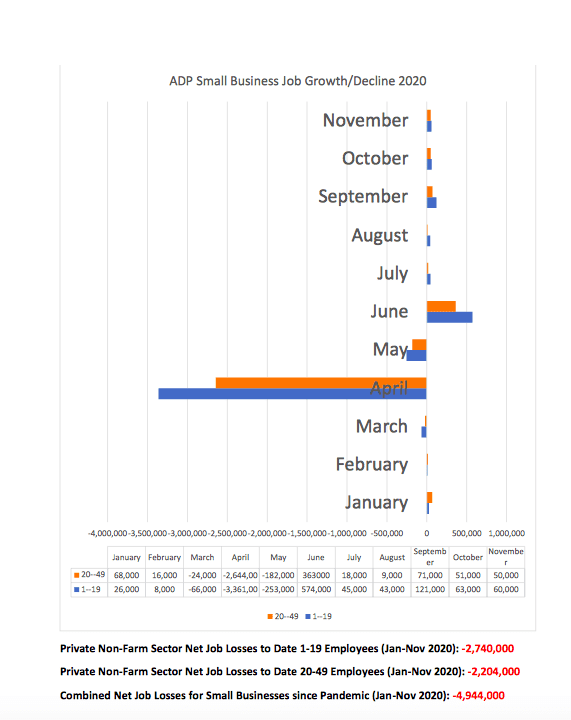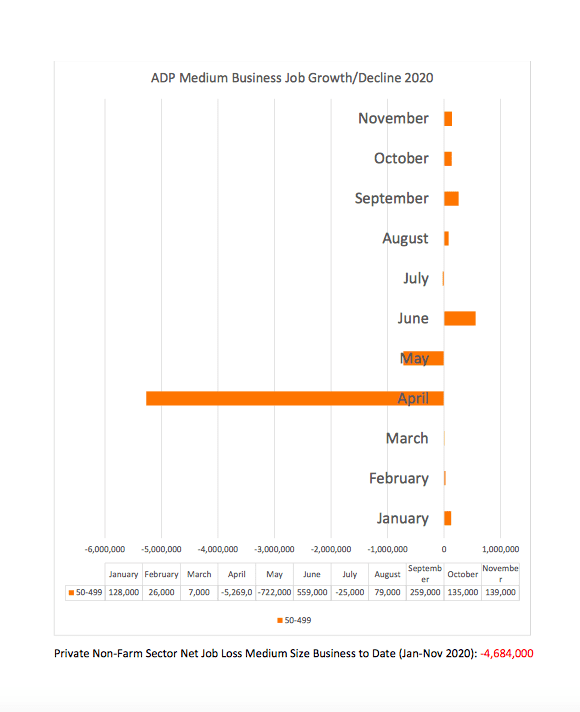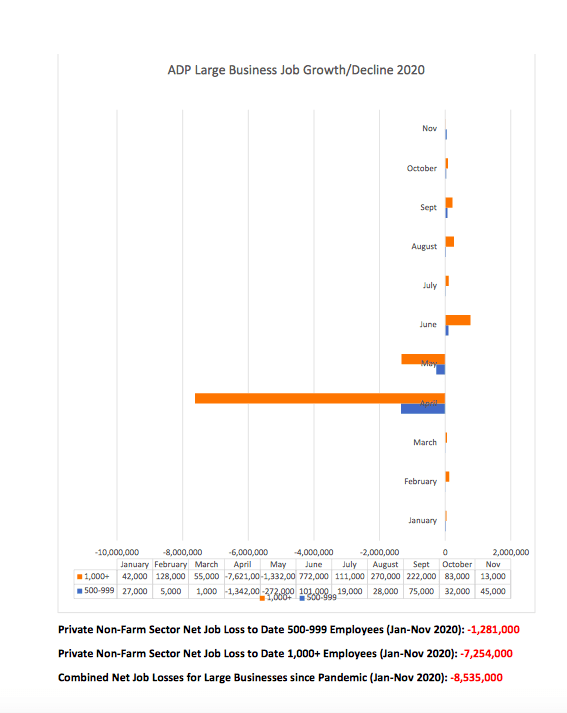
December 4, 2020
While some politicians and economists claim that the economy is doing well and therefore another federal relief bill is not needed, the 2020 job numbers tell a different story.
The South Carolina Small Business Chamber of Commerce put together the below graph and table using data from the ADP National Employment Report published monthly by the ADP Research Institute using actual transactional payroll data.
The 2020 job loss story is pretty much the same for medium size businesses (-4,684,000) and large businesses (-8,535,000).
Today The Washington Post gives these very discouraging facts:
- November was the slowest month of growth since the pandemic shut down the economy in the spring.
- The already well-to-do are bouncing back strong, and those who were already struggling to get by are getting creamed.
- The leisure and hospitality sector has 3.4 million fewer jobs than in February.
- S. airlines employ 81,749 fewer Americans than in March.
- the employment rate for people making more than $60,000 a year is up compared to the start of the year, while low-wage jobs are down nearly 20 percent.
- the number of hours worked by employees, the number of employees clocking in and the number of open businesses falling beginning in late October, reaching its lowest levels since the spring.
- Consumer spending, measured by credit card and debit card data compiled by Opportunity Insights, began to fall at the end of October.
- About 13 percent of households with children reported being sometimes or often not having enough food to eat.
- More than one in three people surveyed recently said that they are having difficulty paying for household expenses.
All this data is a sign of an unsustainable economy, even if you are getting a good salary or are well invested in the stock market.
Reports are that Congress will agree on a new financial relief bill very soon to help small businesses and the unemployed.
That will only be a short-term fix for our economy, but it probably is enough to avoid the recession getting much worse than it still is.
Frank Knapp
President & CEO



